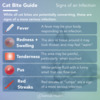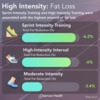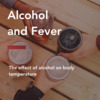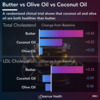Zinc
Can it help pneumonia in adults?
December 4th, 2020
Why Pneumonia Matters
In adults and particularly for the elderly, pneumonia can be deadly.
It is one of the leading cause of death for those over 65. Pneumonia causes around 1 million hospitalizations a year in the US alone and leads to over 50,000 deaths.
Needless to say, anything that can help us reduce the number of pneumonia cases and deaths will be of great benefit to society.
Pneumonia causes around one million hospitalizations per year. It kills around 50,000 adults in the USA. 85% of deaths are in adults ages 65+. Pneumonia disproportionately affects the elderly.
Zinc and the Immune System
One of the least studied interventions for pneumonia happens to be nutrition. While taking large doses of vitamins may not necessarily help, repairing nutritional deficiencies can potentially help boost the immune system.
Your immune system is one of the most complex systems in nature. A diverse team of cells depends on adequate nutrition, vitamins, and minerals, in order to keep functioning at their maximum levels. Not getting enough nutrients can potentially hinder your immune system as it fights off infections.
One nutrient that has been zeroed in on and studied has been zinc. Zinc is a metal that you consume as you eat food. It has been shown to play significant roles in supporting your immune system.
It helps the cells that fight off viruses, it supports the cells that eat up bacteria, and it helps your body modulate inflammation as part of the immune response.
Zinc plays a diverse and important role in supporting the immune system. It helps build T-cells to fight viruses, macrophages to eat up bacteria, and it keeps inflammation under control.
We know much of this by observing those who don’t get enough zinc. We know that their immune system starts to malfunction due to the importance of adequate nutrition in fighting off disease.
However, this doesn’t mean that you should go and take a big dose of zinc. Rather, it supports the importance of eating a balanced diet to ensure that you get enough nutrients.
Zinc vs. Pneumonia
In order to see whether zinc helps pneumonia prevention and recovery, researchers perforned a study across several nursing homes in New England.
Nursing home residents are very high risk of pneumonia as they live in close quarters with other people and they tend to be much older with other health conditions.
Researchers split residents into those who did not have enough zinc in their blood and those who did have enough zinc.
They then examined medical records to see whether there were any differences in their pneumonia rates and recovery.
Zinc and Pneumonia
Can it prevent it?
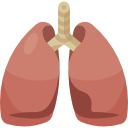

Observational Study

998 Elderly Volunteers
50%
Fewer cases of pneumonia with enough Zinc

Length of Pneumonia Infection

Meydani et al
A study of 998 elderly volunteers in nursing home found that those who get enough zinc are 50% less likely to get pneumonia. Additionally, those who get enough zinc have shorter pneumonia recovery times.
They found that overall, those who get enough zinc were 50% less likely to get pneumonia compared to those who did not have enough zinc.
Additionally, they found that those who have enough zinc also recovered much faster from pneumonia compared to those with zinc deficiency.
Experts on Zinc and Pneumonia
It's still too early to declare zinc as a treatment for pneumonia. The study was not a randomized clinical trial, the gold standard of medical studies. However, it does offer some initial evidence for the potential benefits of getting enough zinc when it comes to preventing pneumonia.
At this point, experts don’t yet emphasize zinc as a preventative measure for pneumonia. However, it has been generally supported as a nutrient that helps immune system.

"Zinc is found in cells throughout the body. It helps the immune system fight off invading bacteria and viruses. The body also needs zinc to make proteins and DNA, the genetic material in all cells."
Office of Dietary Supplements

"A study shows that zinc stops the immune system from spiralling out of control, as happens when people develop sepsis.
The researchers say the findings could also explain why taking zinc supplements at the start of a cold can stem its severity."
BBC

Top Articles
#nutrition
Scroll for more ->
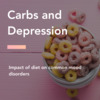
The relationship between carbs...
Carbs from sugary foods increase the odds of common mood disorders in men and re...

Top 3 Benefits of Vitamin D
Vitamin D plays a key role in bone growth, calcium absorption, and your immune s...
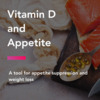
Vitamin D as an Appetite Suppr...
If you do not get a lot of calcium and are on a diet, daily supplements of Calci...
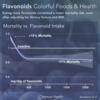
4 Charts | Colorful Foods vs. ...
Visualized Study: A new study suggests that eating more colorful foods may be go...
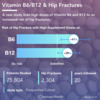
4 Charts: The Risk of Hip Frac...
A new study links Vitamin B6 and B12 supplements to a higher risk of hip fractur...
#new
Scroll for more ->
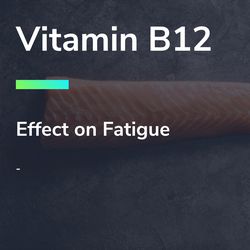
Vitamin B12: Effect on Fatigue
While Vitamin B12 itself doesn’t give you energy, the red blood cells that requi...

Vitamin D and Fatigue

Standing Desks: Benefits for B...

Linoleic Acid: What is it need...
Your body uses linoleic acid to get calories and to create complex molecules. Li...

Standing Desks and Veins
<div style="font-size: 17.136px;">One of the biggest medical concerns with stand...









